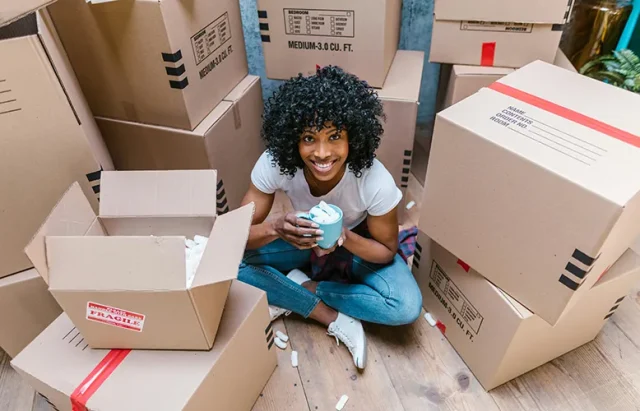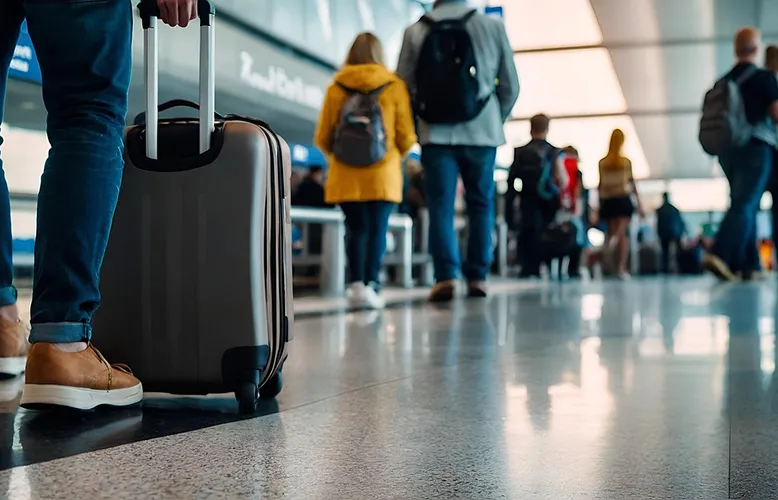
Traveling frequently comes with its fair share of challenges, and keeping your belongings secure should always be a top priority. Whether you’re a business traveler, digital nomad, or an adventure seeker, safeguarding your valuables can save you from unnecessary stress and financial loss. From hotel rooms to airport lounges, your items are constantly at risk of theft or misplacement. But with the right precautions, you can travel with confidence, knowing your possessions are safe.
In this guide, we’ll explore eight essential storage tips designed to help frequent travelers keep their valuables secure. Whether at home, on the go, or in transit. From smart luggage choices to digital security measures, these practical strategies will ensure that your belongings stay protected, allowing you to focus on your journey. Let’s get started.
Rent a Secure Storage Unit for Valuable Items
Leaving your home unattended for an extended period means your valuables could be at risk. One of the best ways to ensure their safety is by renting a secure storage unit. Choosing a reputable storage provider with strong security measures can give you peace of mind while you’re away.
Modern storage facilities offer climate-controlled units, 24/7 surveillance, and restricted access, keeping your belongings safe until you return. For instance, you can find self-storage for homes & businesses to store expensive electronics, family heirlooms, or important documents in a highly secure environment. This is especially helpful if you live in an area prone to break-ins or natural disasters.
Invest in a Home Security System
A reliable home security system can help deter burglars and monitor your property while you’re traveling. Smart security cameras allow remote access, so you can check in on your home from anywhere. Motion sensors and alarm systems provide added protection, alerting you and local authorities in case of unauthorized entry. Some modern security systems even use artificial intelligence to detect unusual activity.
If you already have a security system, ensure that it’s fully functional before leaving. Adding smart locks to doors and windows can further increase security, preventing easy access for intruders. Investing in these measures can help protect your home and belongings while you’re away.
Ask a Trusted Friend or Neighbor to Check In
Having someone you trust keep an eye on your home is one of the simplest yet most effective security measures. A friend, family member, or neighbor can collect mail, water plants, and ensure everything looks normal from the outside. An overflowing mailbox or packages left at the doorstep can signal that the home is unoccupied, making it a target for burglars.
If possible, provide them with a spare key or temporary access to your security system so they can check inside if needed. Regular check-ins can make your home appear lived-in, reducing the chances of a break-in while you’re away.
Use Light Timers and Smart Home Devices
A dark, quiet house is a clear sign that no one is home. To create the illusion of occupancy, use light timers or smart plugs to turn lights on and off at different times. Some smart home systems allow you to schedule lights, TVs, or radios to turn on remotely, making it seem like someone is inside. Motion-activated outdoor lights can also deter potential intruders.
Some systems also allow you to control your blinds and curtains remotely, further simulating daily activity. These simple adjustments can make your home less attractive to burglars, keeping your belongings safe while you travel.
Store Valuables in a Safe or Hidden Location
If you prefer to keep certain valuables at home while traveling, consider securing them in a high-quality safe. Choose a safe that is fireproof, waterproof, and securely bolted to the floor or wall to prevent easy removal. Store essential documents, jewelry, and other valuable items inside. If a safe isn’t an option, hide your belongings in less obvious places.
Avoid common hiding spots like dresser drawers or under the mattress—burglars often check these first. Instead, consider discreet locations such as inside a hollow book, a false-bottom drawer, or even in a locked basement cabinet.
Pause Mail and Subscription Deliveries
A home with piled-up mail, newspapers, or package deliveries is an easy target for burglars. Before you leave, contact your postal service to temporarily pause mail deliveries or ask a trusted person to collect them for you. If you have regular subscriptions, such as meal kits or magazines, consider pausing them to avoid unnecessary deliveries.
If you’re expecting a package, schedule delivery for before your departure or arrange for it to be held at a pickup location. Taking these simple steps prevents your home from looking vacant and reduces the risk of theft or vandalism while you’re away.
Lock Up Garages, Sheds, and Secondary Entrances
While most people focus on securing their front door, many forget about garages, sheds, and back doors—common entry points for burglars. Before traveling, ensure that all secondary entrances are locked and reinforced. If you have a garage, disconnect any automatic openers to prevent hacking attempts. Store tools, ladders, and other equipment inside to avoid giving burglars easy access to your home.
If you keep valuable items in a shed or outdoor storage unit, use a heavy-duty padlock and security cameras to monitor activity. Taking these extra precautions can help prevent break-ins and protect your belongings while you’re away.
Avoid Sharing Travel Plans on Social Media
It can be tempting to post about your upcoming trip or share photos while you’re away, but doing so can alert potential burglars that your home is empty. Even if your social media accounts are private, information can still spread. Instead, wait until you return to share pictures and travel stories.
If you must post updates, avoid mentioning how long you’ll be away or specific details about your home. Additionally, be mindful of auto-reply messages on emails or voicemail that indicate you’re out of town. Keeping your travel plans discreet can help keep your home and belongings secure.

Keeping your belongings secure while traveling doesn’t have to be stressful. By taking proactive measures—such as using a storage unit, installing security systems, and asking a trusted friend to check in—you can leave with confidence, knowing your valuables are safe. Small actions like pausing mail, securing secondary entrances, and using smart home devices can significantly reduce the risk of break-ins. Most importantly, avoid oversharing travel plans online to prevent unwanted attention. With the right precautions in place, you can fully enjoy your trip, knowing that your home and belongings are protected until you return.





